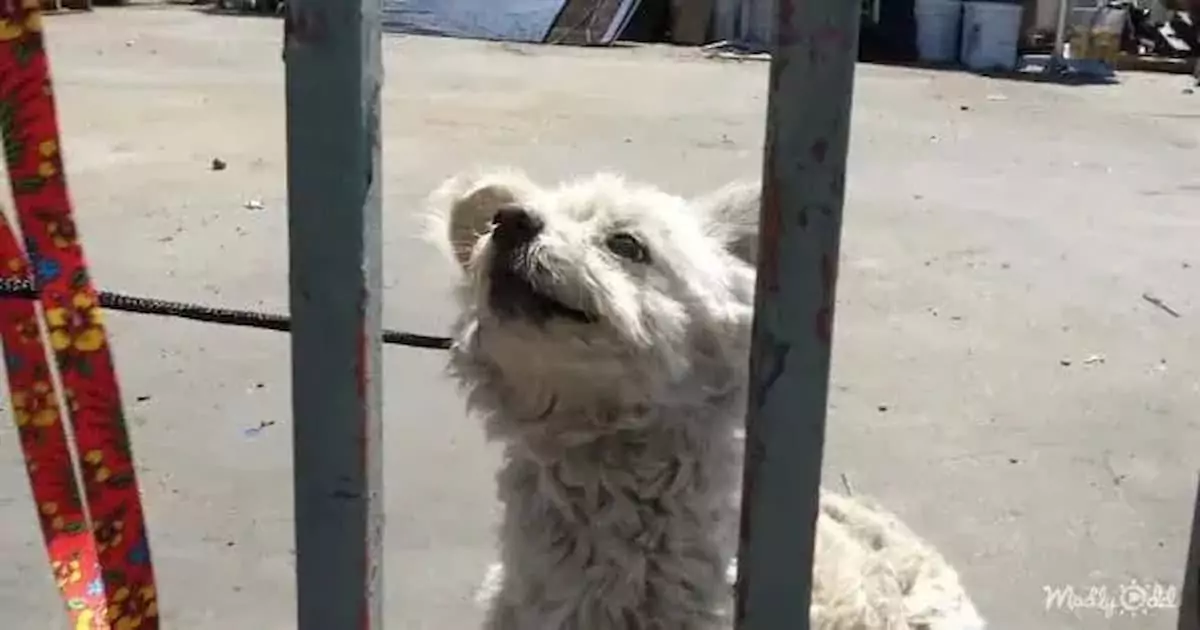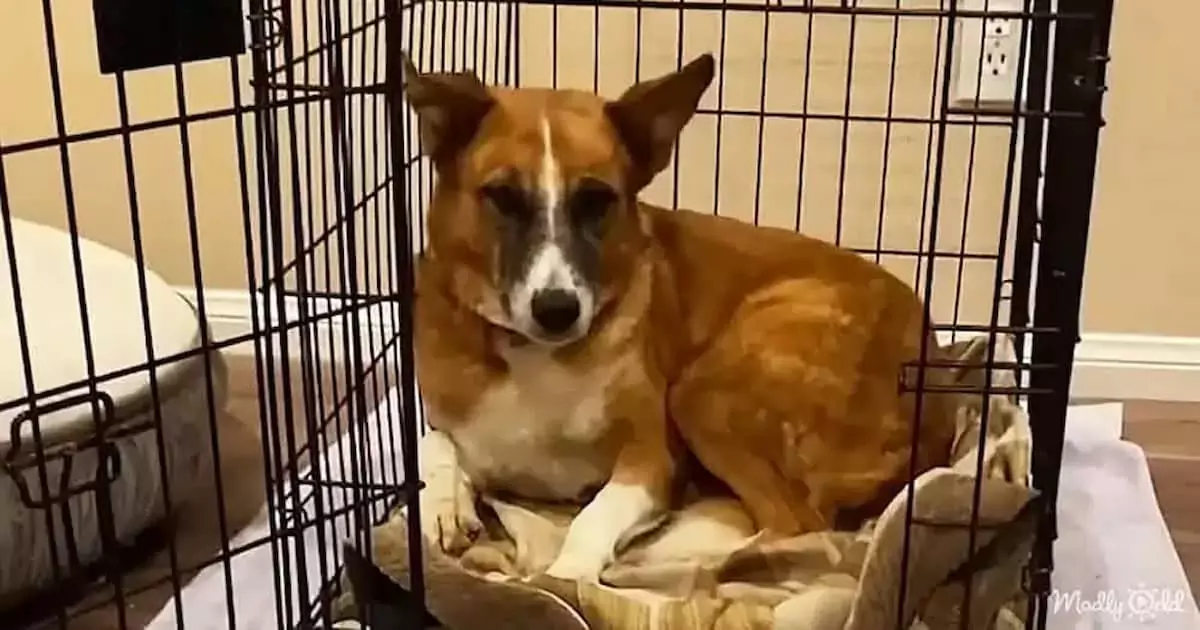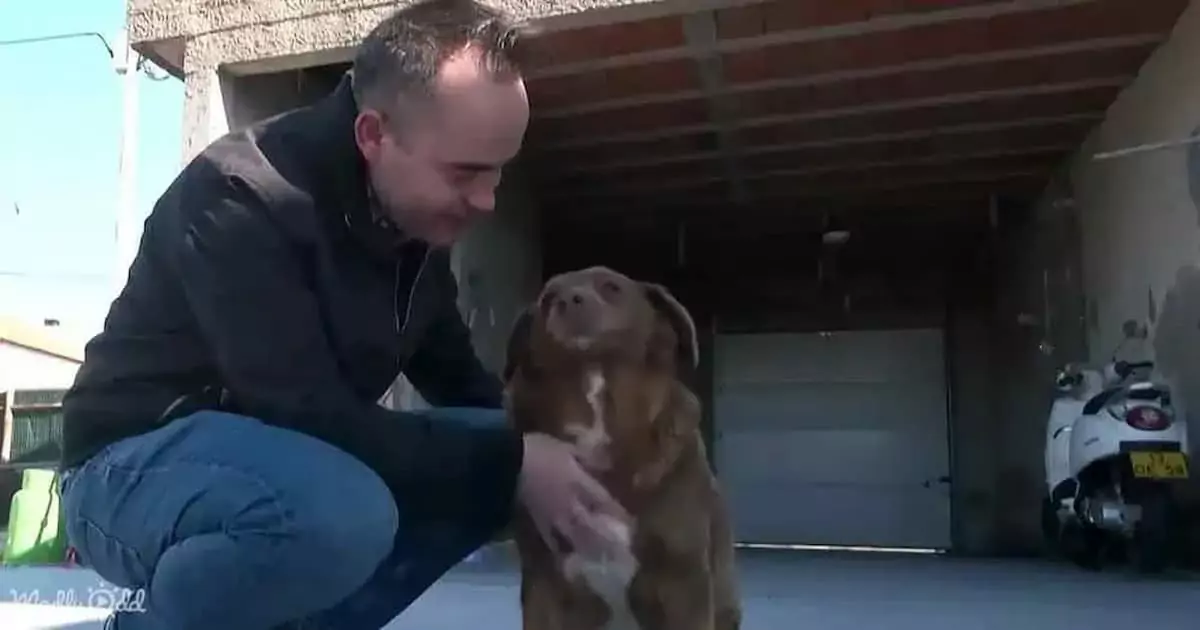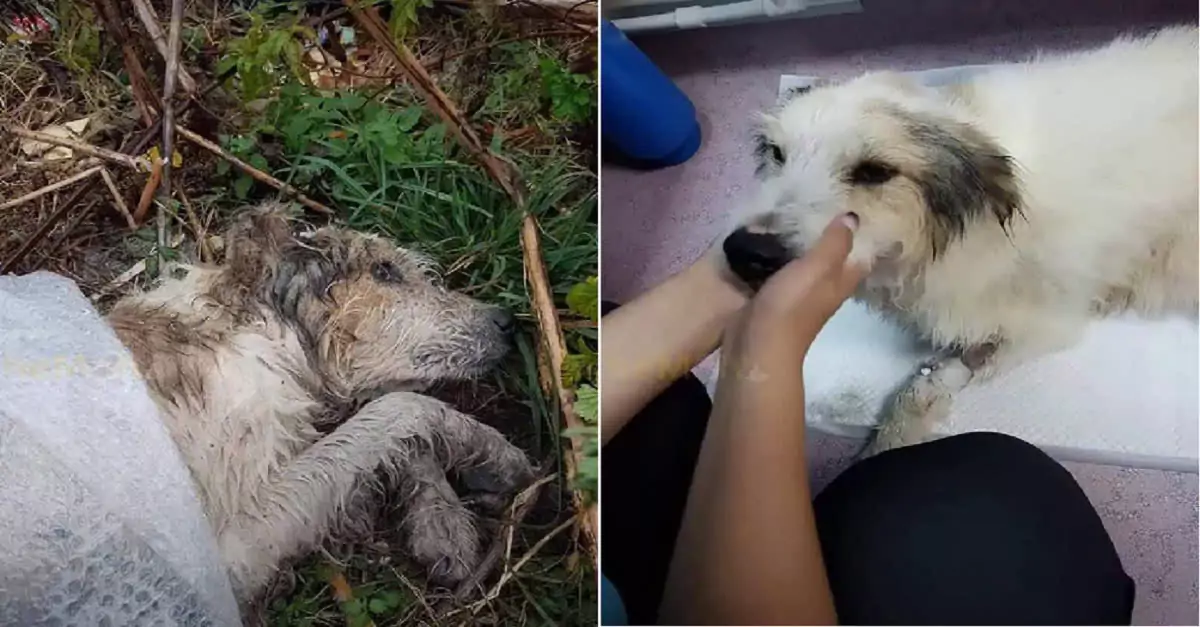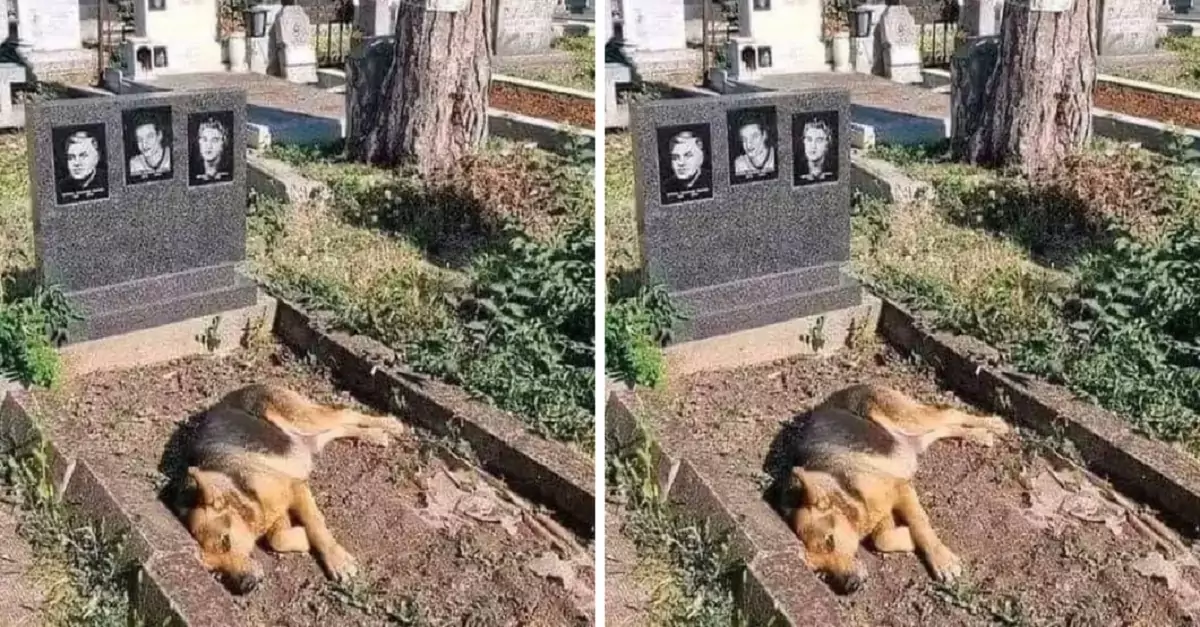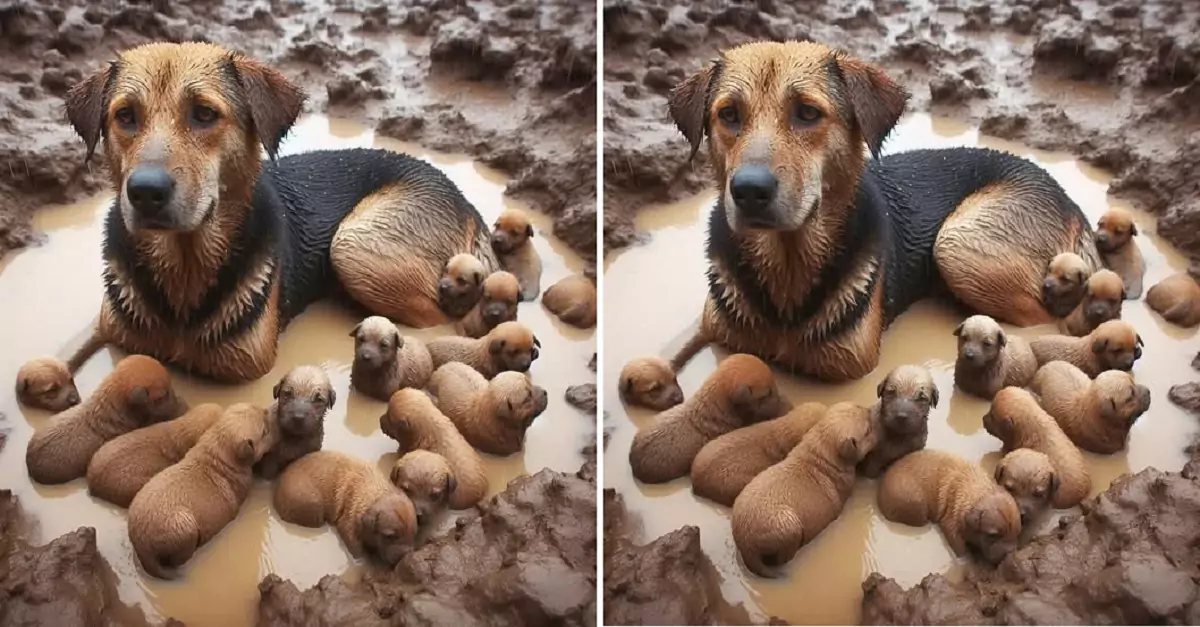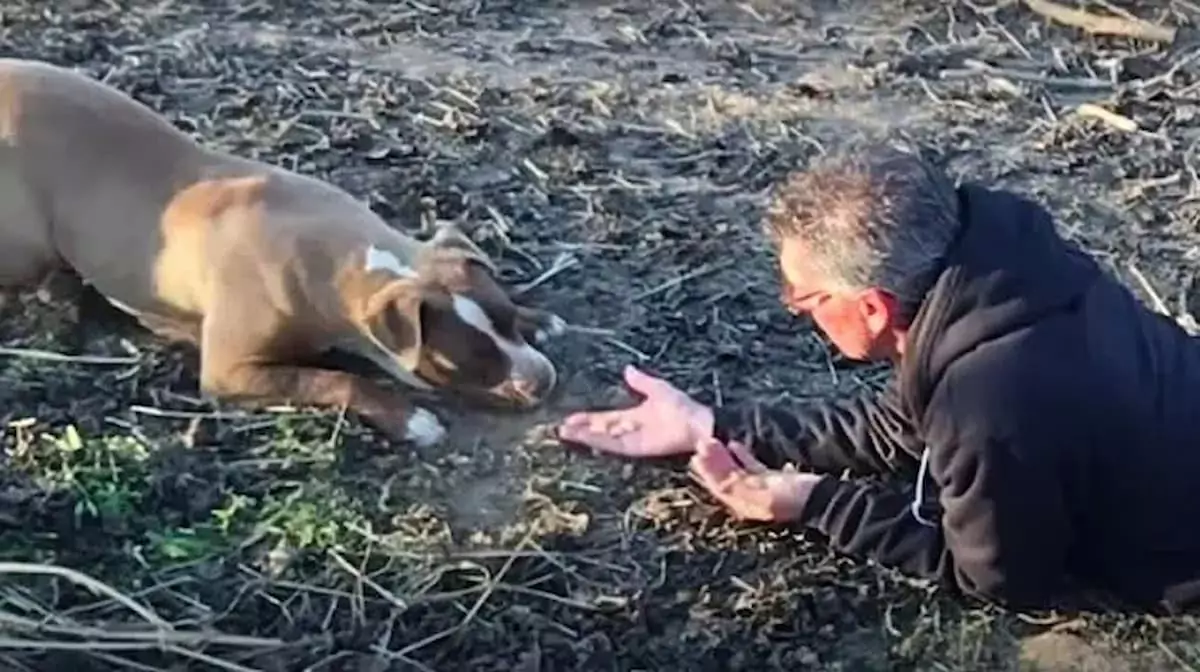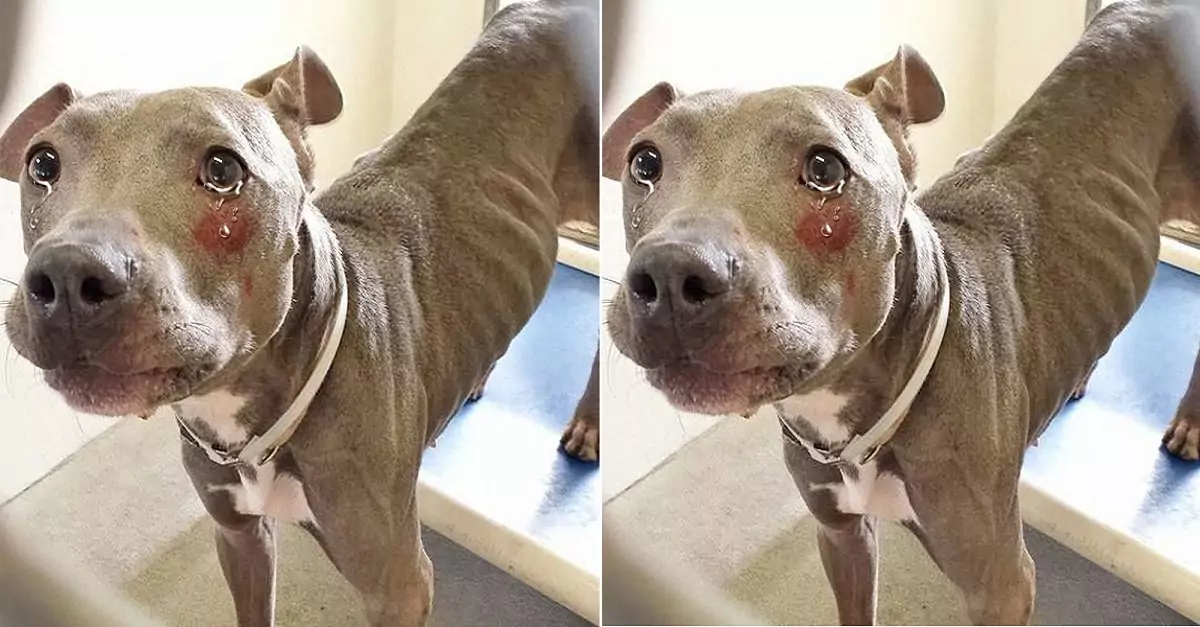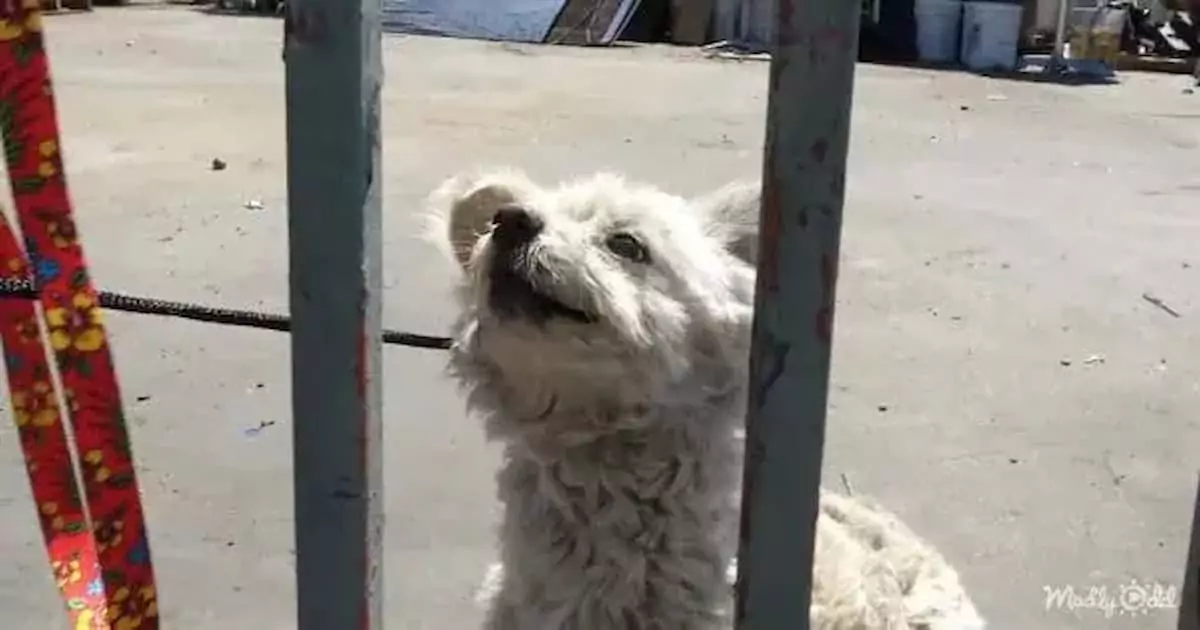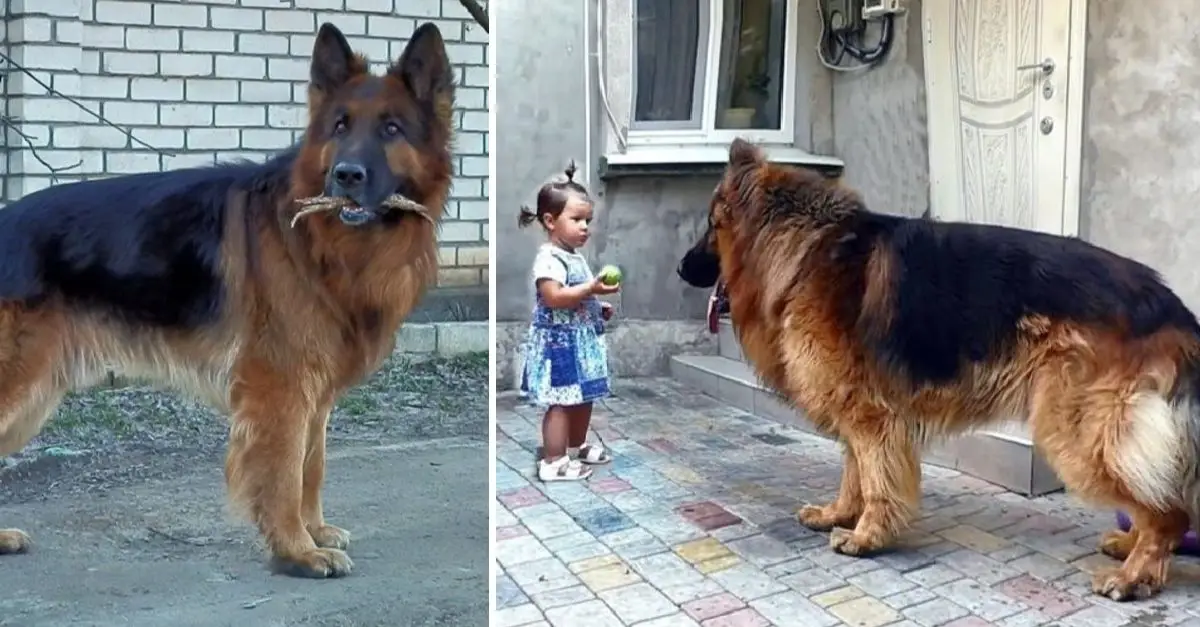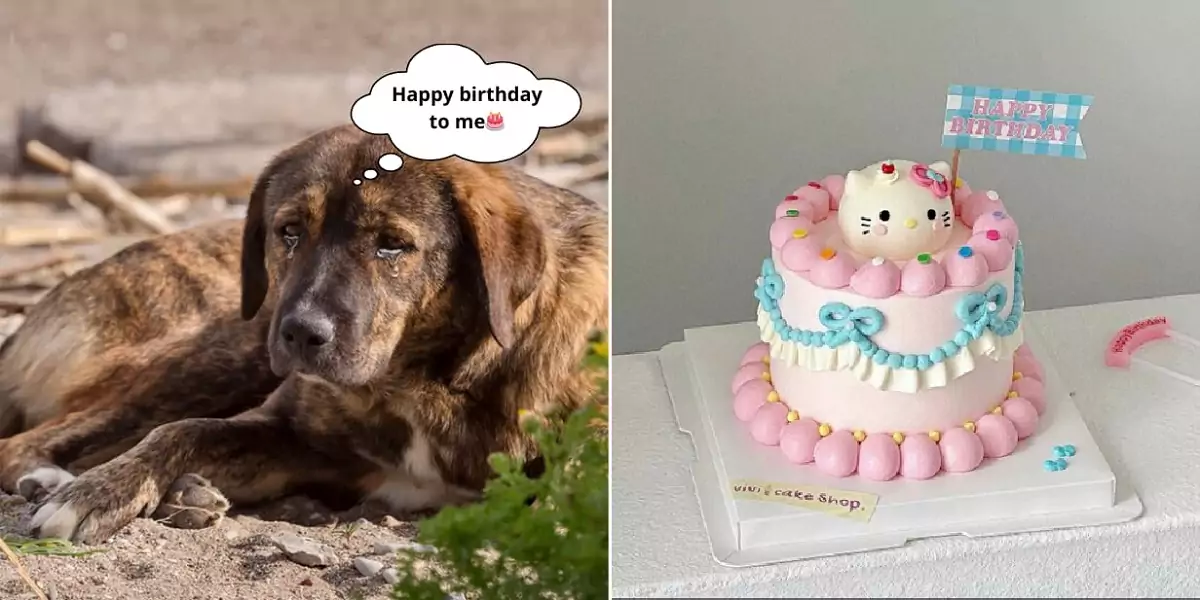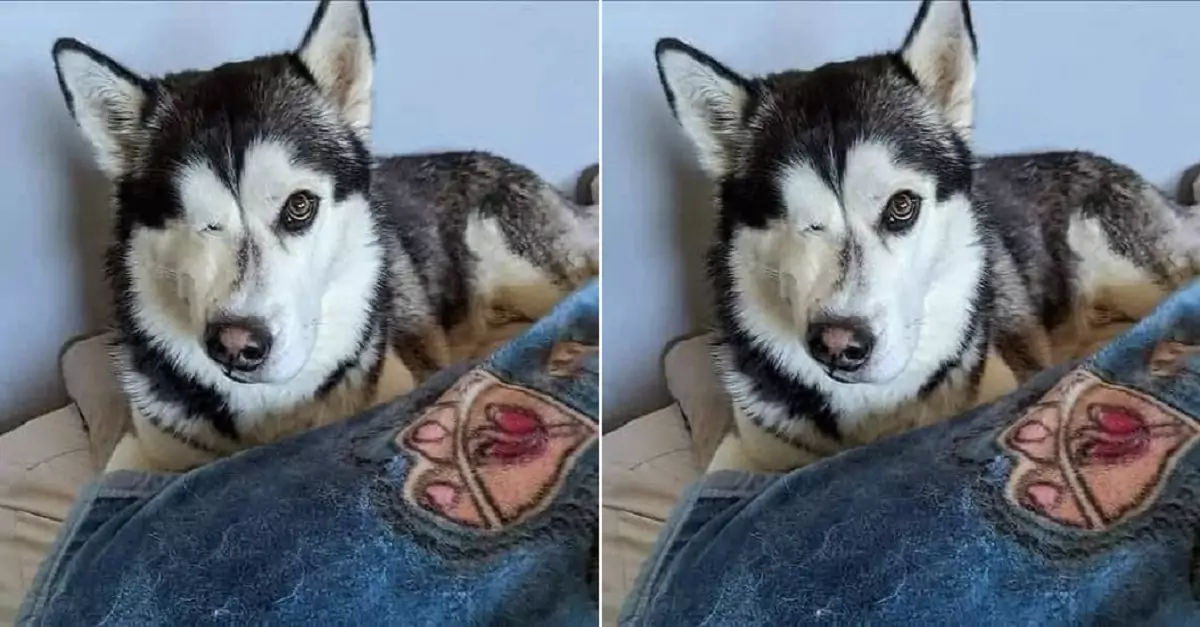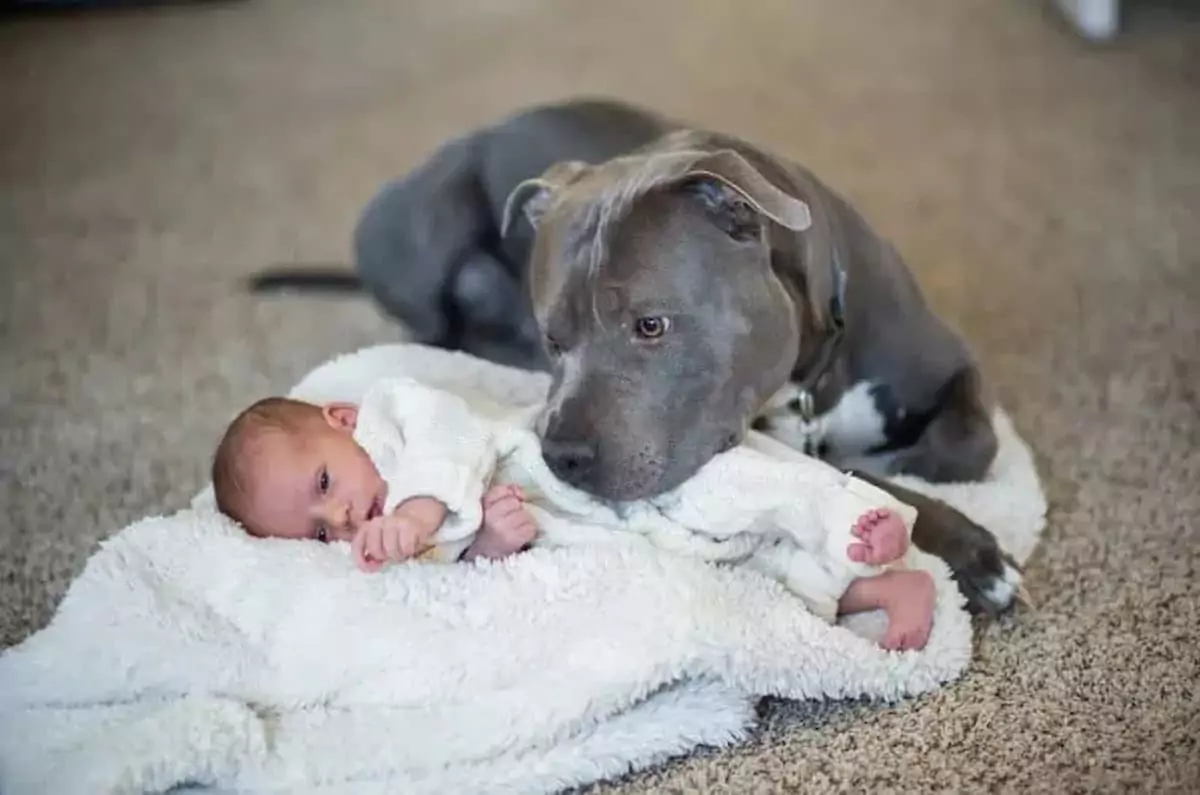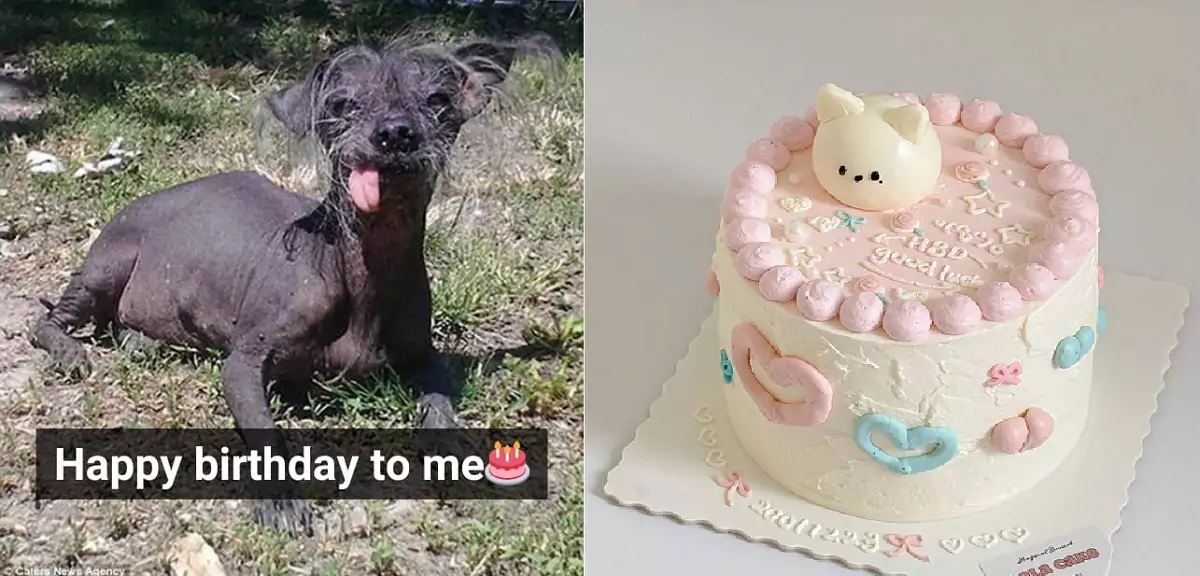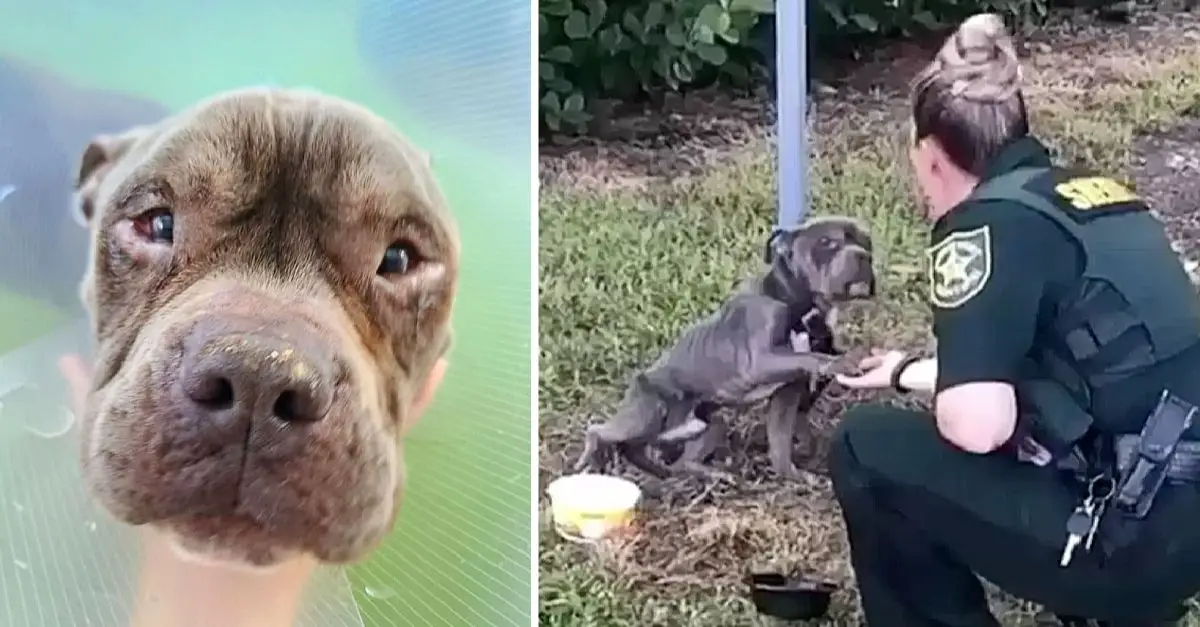The sun had barely risen when the sound of tires crunching on gravel echoed through the forest trail. A small car came to a stop, its door opened, and out leapt a two-year-old dog, full of life and energy, his tail wagging with excitement. He thought it was a fun outing. Maybe a walk. Maybe a new place to explore.
But moments later, the door slammed shut, the engine roared, and the car drove off—without him.
Confused, the dog ran after it, barking, his paws pounding the dirt path. He ran until his legs trembled, until the car was gone and only the echo of the forest remained. His barking slowly faded into silence. And then… nothing.
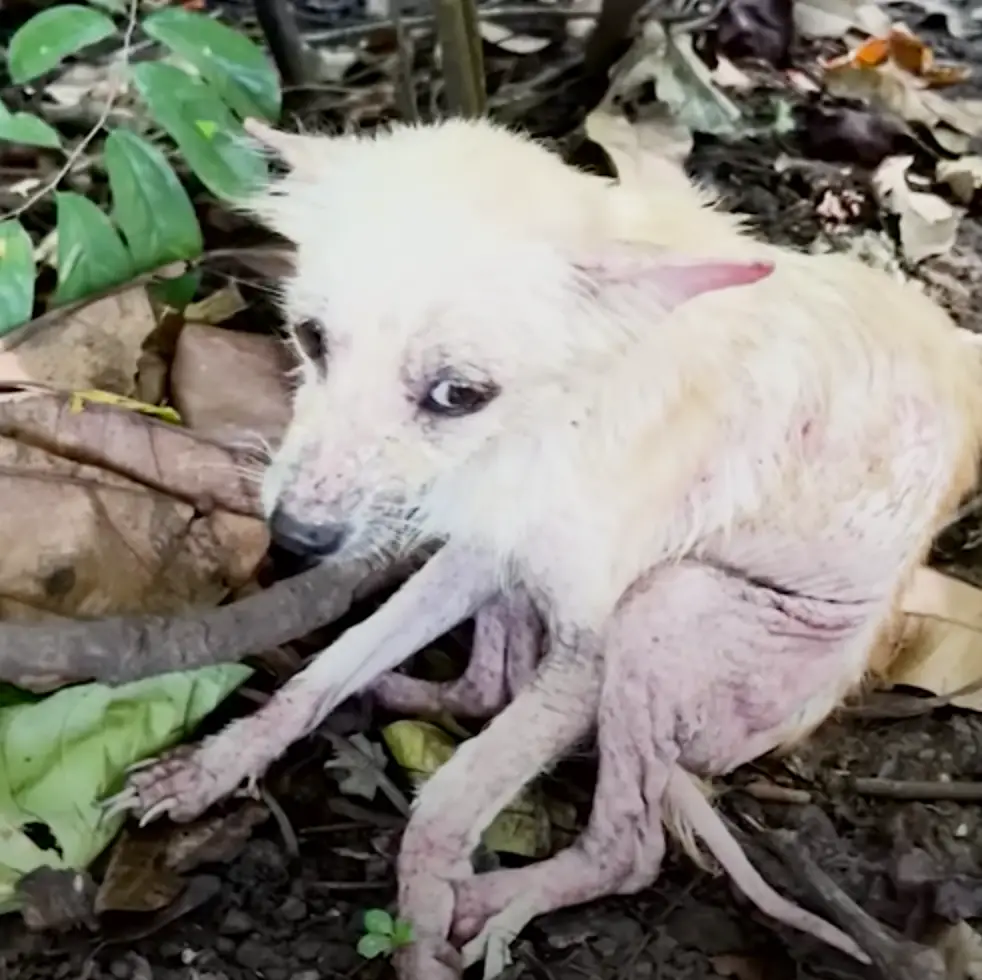
The dense forest was no place for a house pet. The trees stood tall and endless, blocking out the sun, while the underbrush was thick and unforgiving. The dog circled back to the spot where he had been left, hoping the car would return. For hours he waited. Then a day passed. And another.
He grew hungry. Thirsty. Cold at night. Rain soaked his fur, and unfamiliar sounds filled the darkness. He was terrified. He searched for food in the dirt, tried drinking from muddy puddles. He curled up under fallen branches to stay warm, his eyes scanning the shadows for the family who had left him.
But no one came.
Days turned into weeks. The dog grew thinner. His once-golden coat became dull and tangled with burrs. His paw pads were raw from walking on sharp rocks and thorny paths. He had stopped barking. He had stopped running toward every rustle in the leaves. It hurt too much to hope.
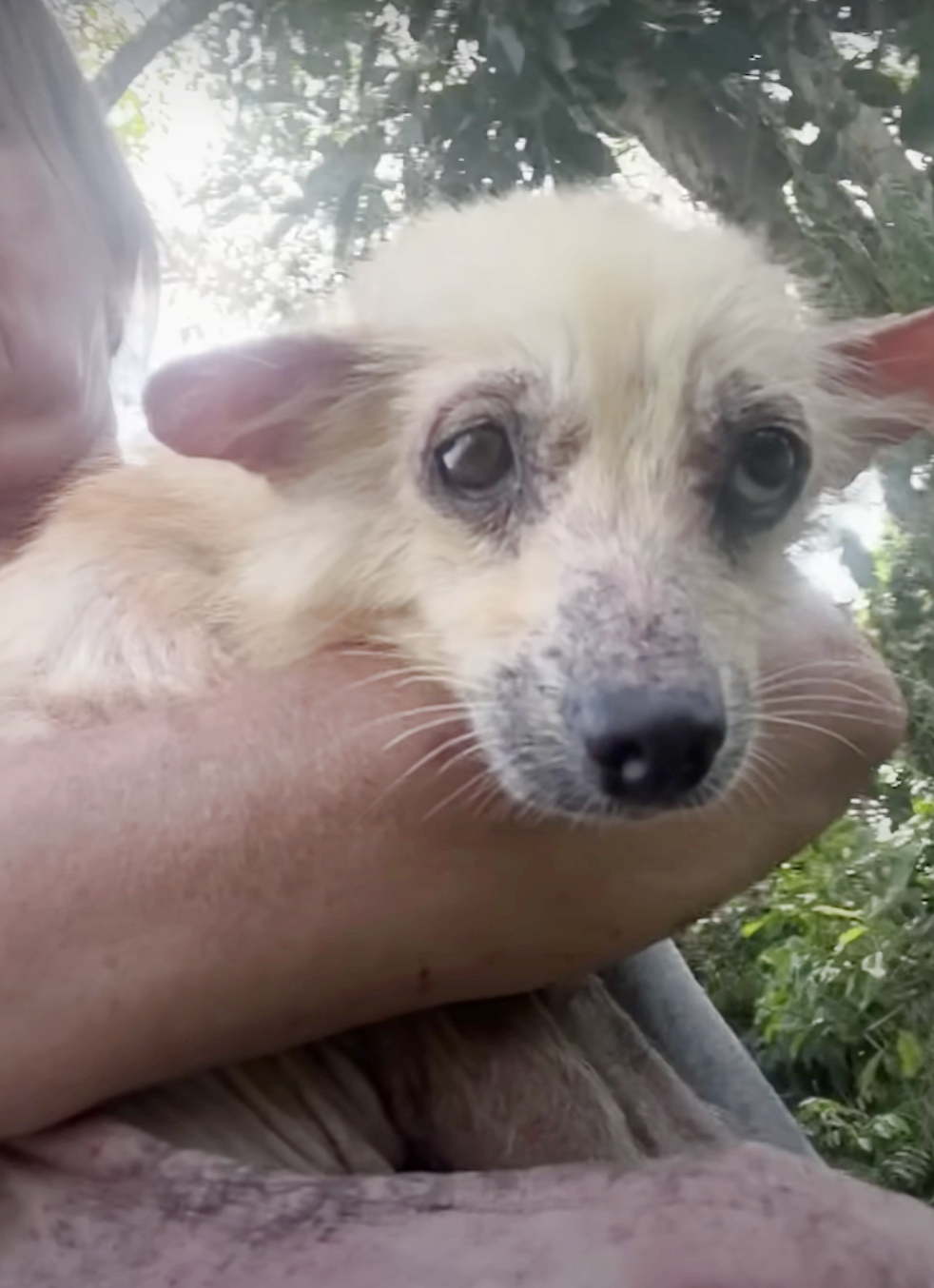
And then, one rainy afternoon, a man named Lucas was hiking through the forest.
He wasn’t looking for a dog. He had come to clear his mind, to find peace in nature after losing his own dog months ago. But as he walked deeper into the woods, he heard something—barely a sound. A whimper. Weak, tired, desperate.
Lucas paused, listening. Then he moved toward the sound, pushing through wet branches until he saw a shape curled beneath a fallen log.
A dog. So thin he looked like a shadow. His head was resting on the cold ground, his ribs visible, his eyes dull with exhaustion and fear. But when he saw Lucas, his tail gave a faint, trembling wag—like a question. Are you safe? Will you hurt me too?
Lucas’s heart broke.
“Hey, buddy…” he whispered, kneeling slowly. “It’s okay. I’m not going to hurt you.”
He took off his jacket and laid it over the dog’s shivering body. The dog didn’t flinch. He didn’t move. He was too weak. But in that moment, something flickered in his eyes—a tiny spark of trust.
Lucas picked him up, feeling how weightless he was, how fragile. He carried him for over two miles back to his truck, shielding him from the rain. The dog never once made a sound.
At the vet, the news wasn’t easy. The dog was malnourished, dehydrated, and had several minor infections. But he would survive—with care, with time, with love.
Lucas took him home.
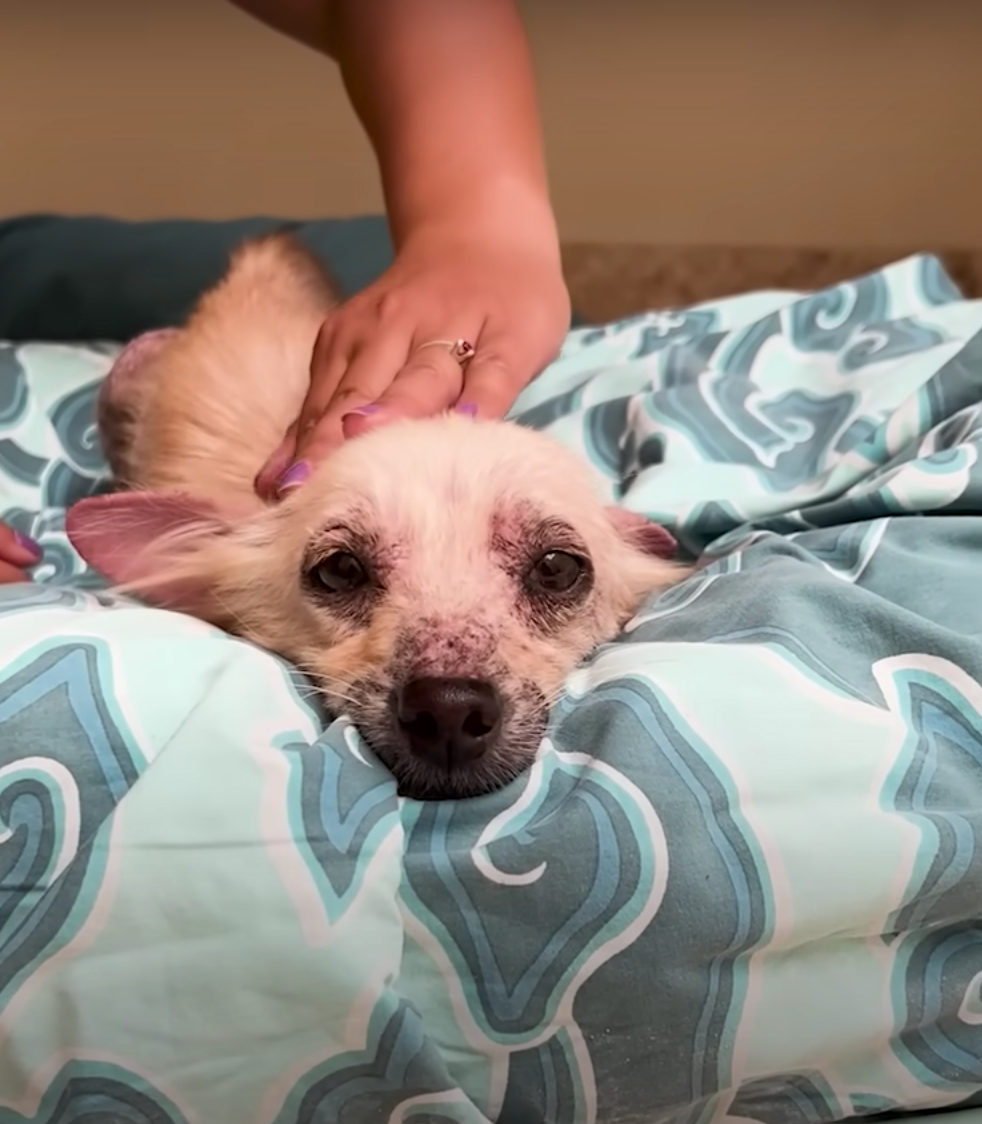
He didn’t give him a name right away. He let the dog learn, slowly, that he was safe now. That this home had warmth, food, clean water, and gentle hands. At first, the dog would eat every meal like it might be his last, gulping it down with frantic desperation. But after a few weeks, he began to eat more slowly. He began to sleep soundly, no longer waking at every sound. He even started wagging his tail again—not in fear, but in joy.
And one day, when Lucas was sitting on the porch watching the sun set, the dog climbed up beside him and rested his head on Lucas’s lap. In that moment, Lucas smiled and said, “I think I’ll call you Rusty.”
It wasn’t just a name—it was a promise.
Rusty had been left behind in the forest, forgotten by the people he once trusted. But someone had found him. Someone had cared. And in the quiet moments of their new life together, Rusty knew something he had never been certain of before:
He was no longer alone. He was home.

